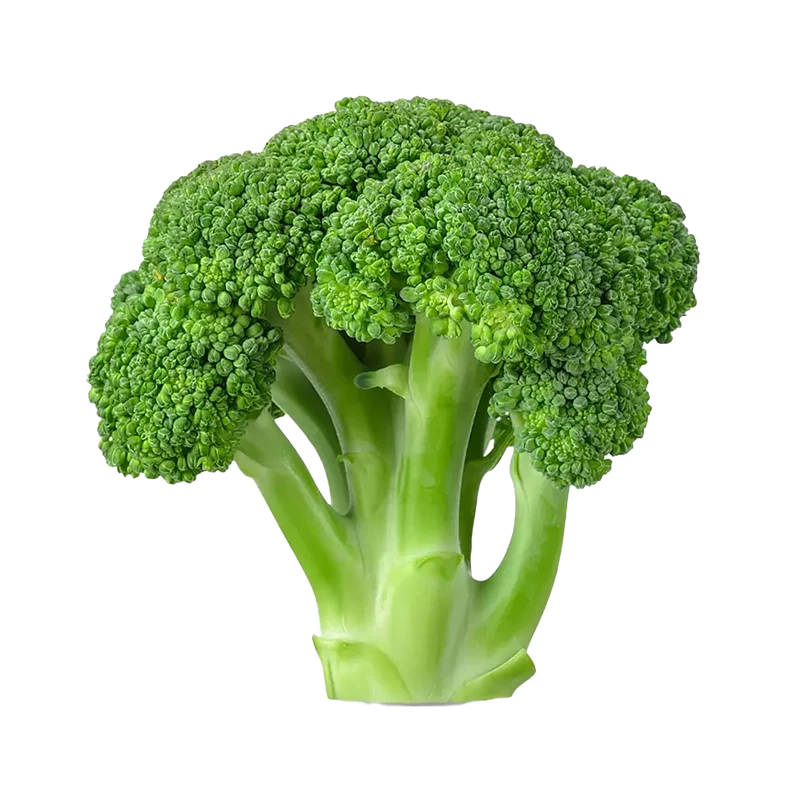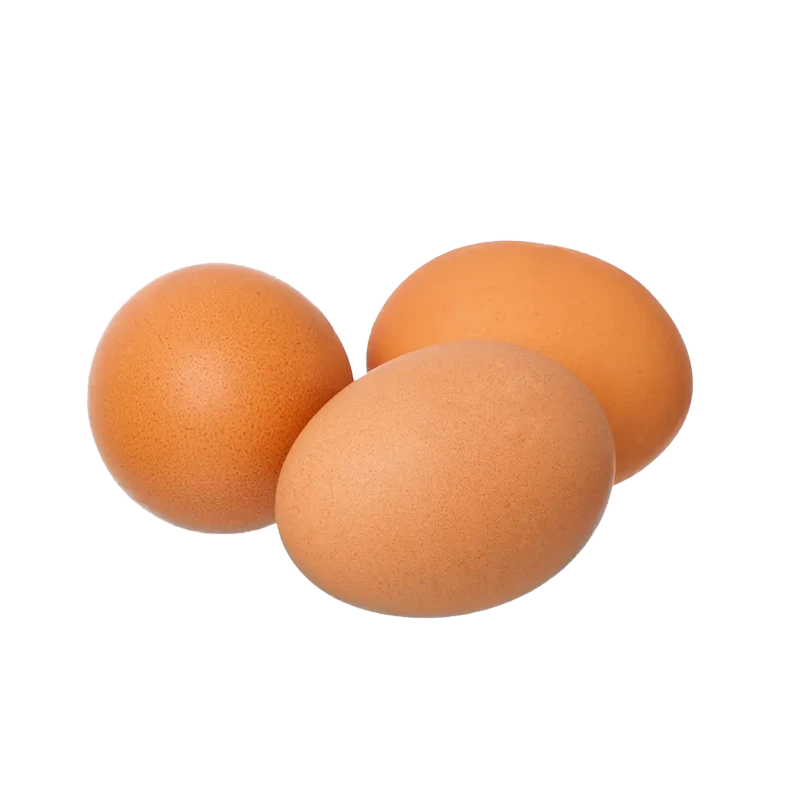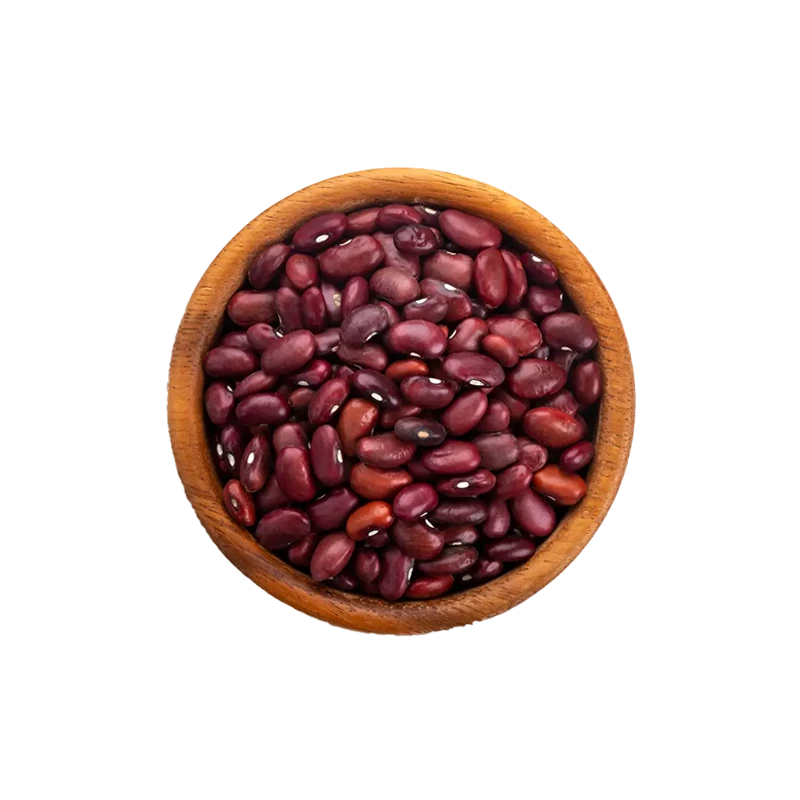Broccoli — Nutrients, Health Benefits, and Shopping Tips

Written by Listonic Team
Last update on September 4, 2024
Nutrients
Nutrition facts
Amount per 100 g
Calories
🔥 34 kcal
| Nutrients per: 100 g | Value | % Daily Value* |
|---|---|---|
| Carbs | 7 g | 2.55% |
| Fiber | 3 g | 10.71% |
| Sugars | 2 g | 4% |
| Glycemic Index | 10 | - |
| Protein | 3 g | 6% |
| Sodium | 33 mg | 1.43% |
| Total Fat | 0 | - |
*The % of Daily Value (DV) tells you how much a nutrient in a serving of food contributes to a daily diet. 2,000 calories a day is used for general nutrition advice.
34
🍏 Low-Calorie Foods
10
🟢 Low Glycemic Index
Key takeaways
Health benefits
- Rich in vitamins and minerals such as Vitamin C, Vitamin K, folate, and potassium, which are essential for overall health and well-being.
- High in fiber, supporting digestive health, promoting regular bowel movements, and maintaining a healthy gut microbiome.
- Contains antioxidants such as sulforaphane, which help protect the body from free radicals and reduce the risk of chronic diseases.
- Supports bone health with its high calcium and Vitamin K content, which are important for bone density and strength.
- Boosts immune system due to its high Vitamin C content, which helps in fighting infections and maintaining overall health.
Health risks
- Digestive discomfort such as gas or bloating due to its high fiber content and certain carbohydrates that can be difficult to digest.
- Potential for goitrogens as broccoli contains compounds that can interfere with thyroid function, particularly when consumed raw in large amounts.
- Potential pesticide residue on conventionally grown broccoli, which can pose health risks over time if not properly washed.
- Possible interaction with blood thinners due to the high vitamin K content in broccoli, which can affect blood clotting in individuals taking these medications.
How to choose broccoli
Broccoli should have tight, dark green florets and firm stalks, indicating freshness and tenderness. The cut ends of the stalks should be moist, not dry or woody.
Avoid broccoli with yellowing florets or wilted leaves, signs of aging and decreased nutritional value. Also, avoid any with slimy spots or a strong odor, indicators of decay.

How to store broccoli
Broccoli should be stored in the refrigerator, preferably in the crisper drawer. Placing it in a perforated plastic bag helps maintain its freshness and crispness for up to a week. Properly stored, broccoli retains its nutrients and texture.
Excess moisture can cause broccoli to spoil, so keeping it dry is important. Do not wash before storing, as residual water can accelerate spoilage. Keeping broccoli away from ethylene-producing fruits helps prevent premature yellowing.
✅ Extra Tip
How long does it last?
Broccoli can last for 3-5 days in the refrigerator. To extend its freshness, store it in a plastic bag with a slightly damp paper towel. For longer storage, broccoli can be blanched and frozen, lasting up to 12 months.
What to do with leftovers?
Leftover broccoli can be used in a variety of dishes. Chop it up and add it to stir-fries with other vegetables and protein, or mix it into a pasta dish with a creamy sauce. Broccoli is also great in quiches or frittatas, where it adds both flavor and texture.
Use broccoli in soups, such as broccoli cheddar soup, or add it to a casserole with cheese and rice for a comforting meal. If you have a lot of broccoli, consider roasting it with olive oil, garlic, and lemon for a simple side dish. Broccoli can also be blended into a pesto with nuts and parmesan, or mixed into a salad with grains and a tangy dressing. For a quick snack, dip steamed broccoli in hummus or serve it with a cheese sauce for a tasty bite.
👨⚕️️ Medical disclaimer
How broccoli supports specific health conditions
Broccoli is packed with fiber, promoting digestive health by supporting bowel regularity. It is also a rich source of vitamin C, enhancing immune health, and contains antioxidants like sulforaphane, which may reduce inflammation and support heart health. Additionally, broccoli is high in vitamin K and calcium, contributing to bone health and helping to prevent osteoporosis.
Discover products from other categories
Listonic Team
Fact-checked
Our editorial team checked this article to make sure it was accurate at the time of publishing it.
Get the top-rated shopping list app







